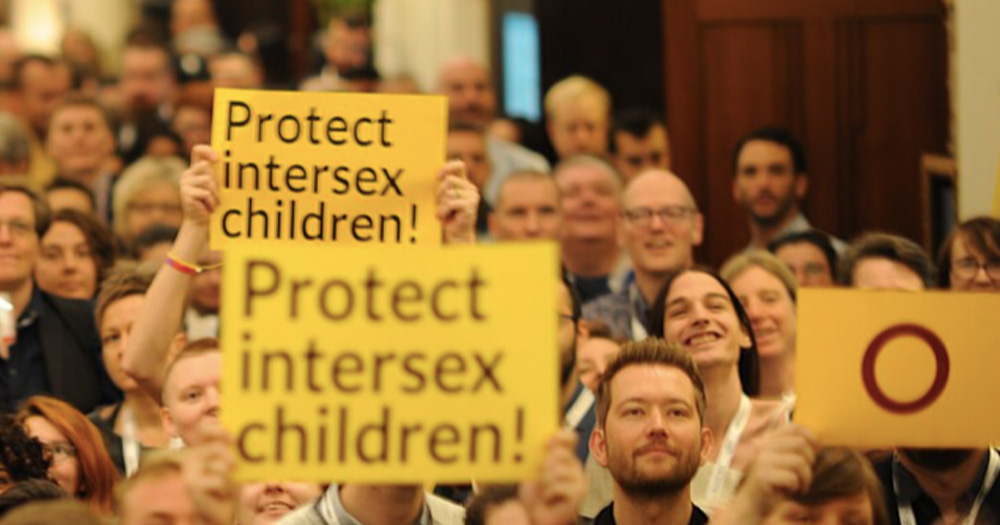Content warning: Mentions of suicide, conversion therapy and non-consensual medical procedures.
The Trevor Project’s 2024 National Survey on LGBTQ+ Youth Mental Health highlights significant mental health risks and challenges faced by intersex youth in the US.
Out of 256 intersex respondents, most identified as transgender, non-binary, or gender questioning. There was diversity in sexual identities as 22% identified as bisexual, 18% as queer, 18% as lesbian, 16% as gay, 14% as pansexual, 10% as asexual, 2% as heterosexual, and 1% as questioning.
77% reported that a family member, teacher, faith leader, or healthcare provider had attempted to change their sexual orientation or gender identity. Meanwhile, more than 10% of intersex youth reported being subjected to conversion therapy, and 20% said they had been threatened with it.
These rates were significantly higher than those reported by their endosex (non-intersex) LGBTQ+ peers. Intersex youth also reported more anxiety, depression, and suicidal ideation compared to endosex respondents.
Nearly 73% of intersex respondents reported recent anxiety symptoms, compared to 66% of endosex youth, and 55% of intersex respondents reported recent symptoms of depression, slightly higher than the 53% among endosex respondents.
Suicidal ideation and attempts were also much higher: 55% of intersex youth reported seriously considering suicide in the past year, compared to 39% of endosex youth, and 25% reported attempting suicide, compared to 11% of endosex youth.
View this post on Instagram
While the sample size wasn’t large enough to represent all intersex youth in the US, researchers emphasised the need for more protections and awareness of intersex needs, especially in healthcare.
“More work is also needed to protect intersex young people from non-consensual medical procedures aimed at altering their bodies to fit binary norms,” researchers noted. 17% of respondents reported undergoing surgery to alter their bodies, with two-thirds lacking informed consent and half occurring before they were one year old.
The Trevor Project’s findings stress the need for increased protections, informed consent in medical procedures, and targeted mental health support for intersex youth.
© 2024 GCN (Gay Community News). All rights reserved.
Support GCN
GCN is a free, vital resource for Ireland’s LGBTQ+ community since 1988.
GCN is a trading name of National LGBT Federation CLG, a registered charity - Charity Number: 20034580.
GCN relies on the generous support of the community and allies to sustain the crucial work that we do. Producing GCN is costly, and, in an industry which has been hugely impacted by rising costs, we need your support to help sustain and grow this vital resource.
Supporting GCN for as little as €1.99 per month will help us continue our work as Ireland’s free, independent LGBTQ+ media.
